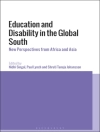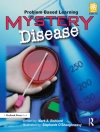Philosophical accounts of childhood have tended to derive from Plato and Aristotle, who portrayed children (like women, animals, slaves, and the mob) as unreasonable and incomplete in terms of lacking formal and final causes and ends. Despite much rhetoric concerning either the sinfulness or purity of children (as in Puritanism and Romanticism respectively), the assumption that children are marginal has endured. Modern theories, including recent interpretations of neuroscience, have re-enforced this sense of children »s incompleteness.
This fascinating monograph seeks to overturn this philosophical tradition. It develops instead a ‘fully semiotic’ perspective, arguing that in so far as children are no more or less interpreters of the world than adults, they are no more or less reasoning agents. This, the book shows, has radical implications, particularly for the question of how we seek to educate children. One Aristotelian legacy is the unquestioned belief that societies must educate the young irrespective of the latter »s wishes. Another is that childhood must be grown out of and left behind.
Professor Andrew Stables
Childhood and the Philosophy of Education [PDF ebook]
An Anti-Aristotelian Perspective
Childhood and the Philosophy of Education [PDF ebook]
An Anti-Aristotelian Perspective
Achetez cet ebook et obtenez-en 1 de plus GRATUITEMENT !
Format PDF ● Pages 210 ● ISBN 9781441190185 ● Maison d’édition Bloomsbury Publishing ● Publié 2008 ● Téléchargeable 6 fois ● Devise EUR ● ID 2975579 ● Protection contre la copie Adobe DRM
Nécessite un lecteur de livre électronique compatible DRM












